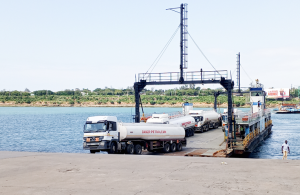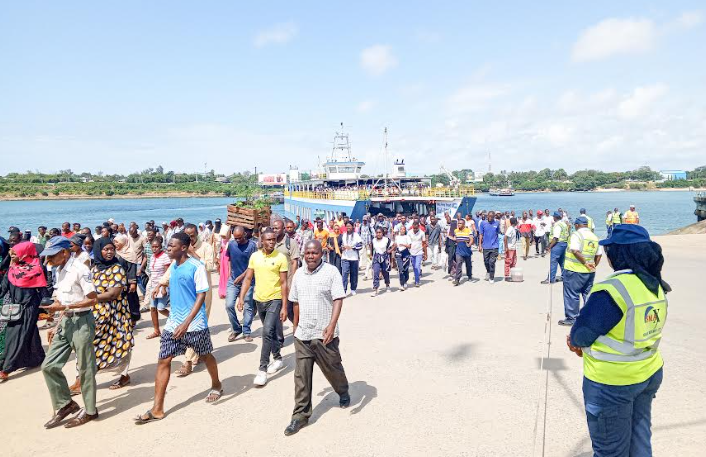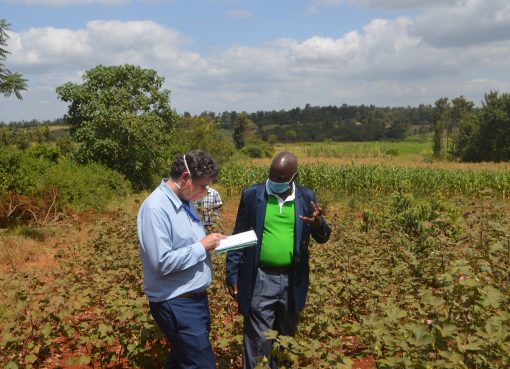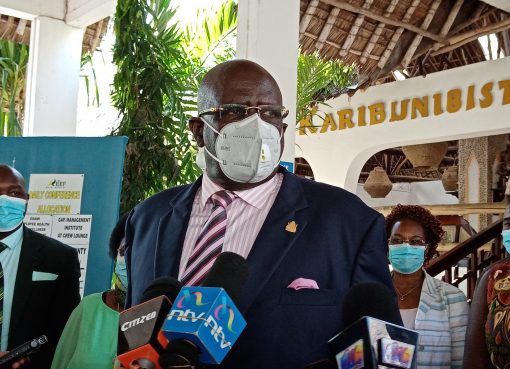Mombasa residents have hailed the Kenya Ports Authority (KPA) for streamlining operations at the Likoni Ferry Crossing channel since the Kenya Ferry Service was amalgamated with KPA.
According to KPA Managing Director, Captain (Capt.) William Ruto, the 24-hour ferry service complements road transport.

“The Ferry service facilitates viable transportation for an estimated 126,000,000 million pedestrians and 2,560,000 motorists annually in the Likoni channel,” he said.
“The efficient provision of ferry services continues to be a crucial component in moving people and commodities between the Mombasa Islands and the southern mainland, fostering social-economic growth in the agricultural, tourism, manufacturing, and service sectors,” said Capt. William Ruto.
The crossing channel is used by more than 300,000 passengers and 6,000 vehicles daily, leading to heavy congestion, particularly during peak hours in the morning and evening.
The Dongo Kundu bypass under construction is poised to be a game changer; it will not only connect three main transport corridors: the Mombasa-Nairobi highway, the Mombasa-Malindi highway, and the Mombasa-Lunga Lunga highway, but also reduce congestion at the Likoni ferry.
Despite the indefinite closure of the Liwatoni Floating Bridge for routine service and the halt of service at the Mtongwe ferry, the Likoni channel has recorded an unprecedented surge in passengers during peak hours; however, passengers have been crossing seamlessly.
Since KPA took over, it has put in place a raft of measures to reduce congestion and seal revenue loopholes. Some of the noticeable changes introduced are an automated payment system, automatic barrier gates, and well-marked roads.
During peak hours, five ferries are in operation. The management has moved routine maintenance procedures off-peak and even overnight to minimise the inconvenience it might cause ferry users.
“Monthly income collection has increased dramatically, from Sh. 30 million to Sh. 56 million, after the cashless system was put in place. Every day, about 7,000 fleets of cars cross. Less than 3.5-tonne cars, vans, and buses pay between Sh 120 and Sh 600 per way to cross the waterway,” divulged KPA MD.
“We are grateful to the management of KPA; it has brought tremendous improvement. For two years, the ferry precincts were synonymous with long lines of traffic stretching to the CBD. Some motorists used to cross late in the night,” said Evans Momanyi, a Mombasa resident.
“Since KPA took over the operations at the Likoni crossing channel by incorporating Kenya Ferry Service staff to KPA, there have been a lot of changes; ostensibly, the personnel feel motivated, there is professionalism, congestion has decreased, and hawkers are disciplined and no longer sell their products along the roads to avert accidents,” he added.
Momanyi appreciated the relentless efforts of Shee Famau, a Senior Port Security Officer attached to the channel, to restore order. Such people, he said, deserve promotions in recognition of their work.
“The staff nowadays are courteous to passengers; there is decorum after the floating bridge ceased operations indefinitely; we expected there would be commotions, but there are none,” said Momanyi, adding that a stage for Tuk-Tuks to pick up and drop off passengers has also been set aside.
The residents hailed the multi-agency cooperation for a reduction in cases of pickpocketing, which were rampant at the channel.
“Crossing time has been reduced; before, we used to wait for between 15 to 30 minutes before boarding the ferry, but now in less than five minutes, you have to cross. The operations are seamless compared to the past; even cases of crime have reduced; if you forget your luggage, you will find it intact the next day,” said Omar Juma, a Likoni resident.
Juma noted that accidents have reduced, the ferries are serviced, and the staff are dedicated and doesn’t even take lunch breaks.
“They deserve bonuses. We welcome visitors to come and witness the changes in ferry operations,” he said.
By Sadik Hassan





